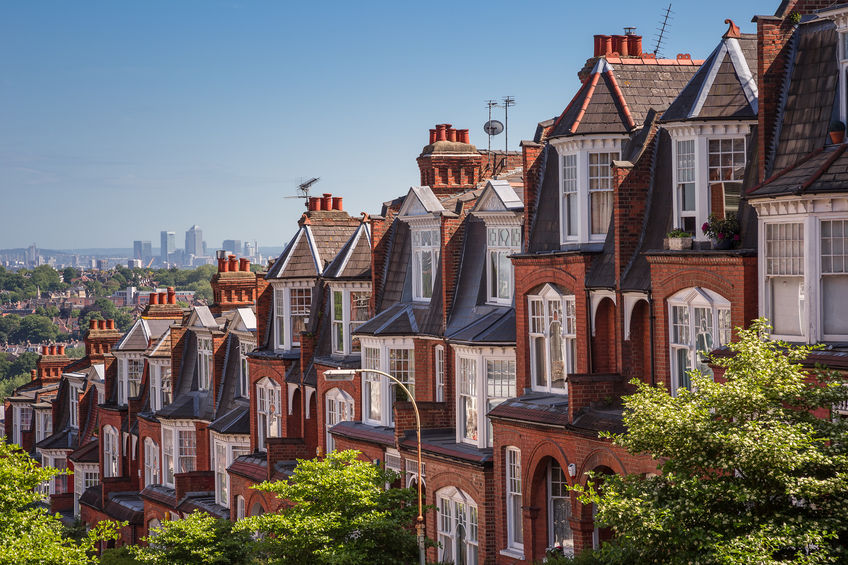There is no doubt that 2020 has been an exceedingly interesting year and there are still a handful of months to go before we finally arrive at 2021. While the Brexit tended to dominate property market concerns during the first quarter, we are all well aware of the impact that the current global health crisis has had upon the domestic economy. This is why we are truly entering into uncharted territory in terms of the property markets and also one of the primary reasons why analysts are keeping a close eye on the latest news that may emerge. Let’s take a look at some of the latest findings for the month of October as well as any medium-term projections that may come into play.

A Healthy Rebound
It can be argued that the most paramount concern during the initial stages of the lockdown was the impact that such a move would have upon the property sector. While we did indeed witness a drop in demand (as should have been expected), the latest London housing market report expects these very same prices to rise by as much as 2% between now and the end of the fiscal year. Why is this the case?
There are a handful of reasons why this boom is expected to benefit the sector. The first is rather psychological in nature. Many buyers were forced to put their plans on hold during the spring and early summer months. Now that restrictions have been lifted, we are beginning to witness a pent-up desire to make a purchase rebound.
Furthermore, we need to keep in mind that major cities such as London are some of the most popular for those who are looking to leverage the benefits associated with a Stamp Duty holiday.
It is also crucial to mention that recent statements by the PM as well as his officials seem to indicate that the Draconian measures taken earlier in the year will not be considered in the future (even if local infection rates are on the rise). This presents a lucrative opportunity for those who are looking to leverage an increased sense of flexibility.
Rising Mortgage Approvals
The scenarios mentioned within the previous section will also carry through to approved mortgages throughout major metropolitan regions such as London and Birmingham. Spurred on by a perceived increase in demand (as well as price rises), recent figures from September have illustrated that recent mortgage approvals have increased at their highest rate since August 2016. While this is certainly positive news for the consumer, we should also highlight the fact that higher approval percentages are likely to cause landlords to slightly hike property prices; arguably another reason for the increased market growth outlined earlier.

The Presence of Record Highs
One of the issues associated with the property markets is that information is only obtained in hindsight. In other words, present figures will only come to light in the near future. This is why many of the insights associated with August are actually derived from September findings. It is nonetheless a fact that the markets are looking bright indeed.
Statistics from September showed that the average prices throughout London reached just over 480,000 pounds. This is no less than 57% above their baseline levels recorded during the financial crisis of 2007.
These record highs may also be an ancillary result of the previous lockdown. Some analysts feel that property owners are beginning to re-asses their future preferences as well as to analyse logistical issues such as how long it takes to publicly commute between work and home. Thus, it is not great surprise that the demand for London properties is on the rise.
What Might the Future Have in Store?
Although no one has a crystal ball, some property market analysts are predicting a slowdown in demand for London properties. Not only might this arise from the simple result of supply and demand, but a handful of economists point out that unemployment rates may reach as high as 8% by Q4 2020. This could certainly put a damper upon the buying community and as a result, it is only logical that prices may once again begin to fall.
On a final note, there are still some variables which need to be mentioned. It can be argued that the most relevant involves whether or not the UK government may initiate a partial lockdown in some portions of major cities. While this would not result in a massive amount of economic disruption, we are left wondering whether it might dent buyer confidence. Furthermore, a lack of overseas buyers could likewise indirectly impact the London property market. This will partially depend upon how foreign economies such as Spain, Germany and France fair with their current COVID-19 outbreaks.
Ultimately, the London property markets are continuing to exhibit a robust fortitude and this trend should be expected to continue from a medium-term perspective. It is nonetheless a fact that many other factors may enter into the equation between now and the cessation of Q4 2020.